[key_takeaways title="Quick answer:"]
- You can sell crypto in Switzerland by following these steps:
- Choose a platform: Select an exchange supporting your chosen cryptocurrency and withdrawal method.
- Create and verify an account: Create an account for the platform and complete the KYC verification process by providing a photo ID.
- Deposit crypto: Use the 'Deposit' button to initiate the process, copy your deposit address, and send crypto from your wallet to the exchange, ensuring both networks match.
- Complete the crypto sale: Lastly, you can search for a trading pair or use the instant sale feature some platforms offer. Then, decide how much crypto to see and for what price, double-check fees, and confirm the sale.
[/key_takeaways]
Learning how to sell crypto in Switzerland is complex. The range of methods and platforms makes determining the best technique even harder. However, we're here to help.
This guide discusses the ins and outs of selling crypto in Switzerland, covering everything from tax implications to the best platforms and alternative methods. Let's get started.
What are the tax implications for selling crypto in Switzerland?
Switzerland is a crypto-friendly country that makes selling crypto straightforward regarding taxes.
The government doesn't impose capital gains tax on virtual currencies for private residents, so you can buy crypto and sell it for a profit without paying capital gains tax.
That said, you must include your crypto transactions on your tax return and pay the applicable wealth and income taxes arising from your crypto activities.
- There is no capital gains tax in Switzerland.
- Switzerland levies a variable wealth tax.
- You must report your crypto activities on your tax return.
How is crypto regulated in Switzerland?
Cryptocurrency is regulated in Switzerland by the Financial Market Supervisory Authority (FINMA) and the Swiss Federal Tax Service (SFTA).
The country considers cryptocurrencies as assets and properties. However, crypto is not regarded as legal tender in Switzerland.
Cryptocurrency regulations in Switzerland are relatively relaxed. Private citizens can freely trade digital assets, as crypto-related activities are not prohibited. However, you must report your crypto-related activities on your tax return.
Regulations are more strict for financial institutions and platforms, including the best crypto exchanges in Switzerland.
Under Switzerland's Blockchain Act, exchanges and crypto platforms are considered financial institutions requiring a FINMA license.
Moreover, all platforms must comply with local Combating the Financing of Terrorism (CFT) and Anti-Money Laundering (AML) regulations.
- Buying, selling, and trading crypto is legal in Switzerland.
- Exchanges require Know-Your-Customer (KYC) verification.
- Switzerland is more crypto-friendly than many other countries.

How to sell crypto in Switzerland (step-by-step)
Figuring out how to sell crypto in Switzerland can be daunting. Moreover, the process is confused by contradictory information. However, using the step-by-step guide below, anyone can sell crypto in Switzerland without issue.
Step 1: Choose a platform
Before selling crypto, you must choose a crypto off-ramp platform to conduct the sale. Many options are available. Some of the most common include a cryptocurrency exchange, a Peer-to-Peer (P2P) marketplace, or a Bitcoin ATM.
- Generally, using crypto exchanges is the most straightforward way of selling crypto. P2P platforms are best for anonymity, while Bitcoin ATMs are excellent for in-person sales.
- During selection, you should consider your requirements and preferences to weigh against each exchange's offerings.
- It's essential to consider a platform's track record and regulatory status. It would help if you also looked at customer reviews to check real user experiences.
Step 2: Deposit crypto assets
After creating and verifying an account for your chosen platform, you must deposit crypto.
You must use the 'Deposit' button, select the relevant network, copy the deposit address, input it into your wallet, and confirm the transaction.
After initiating the transfer, the crypto should arrive in your account within a couple of hours.
- If you're selling a layer-2 asset created using another project's infrastructure, you'll need some of the base crypto (e.g., ETH for ERC-20 assets) to cover network fees.
- You must only deposit money into a network that matches your asset. If you deposit a crypto on the wrong network, your funds will be lost.
- You should carefully review the deposit address when inputting it into your wallet to ensure it matches the address displayed on the exchange.
Step 3: Sell crypto in Switzerland
Once your cryptocurrency deposit is confirmed and available on your chosen platform, you can initiate a sale. Search for a pair denominated in your sale asset that will yield the crypto or fiat currency you desire.
Afterward, use the order menu to input the amount to sell and the sale price, preview any fees and confirm the transaction.
- It would help if you sold your crypto for the currency you want to avoid conversion excess fees.
- Each exchange charges different fees, so double-check them before depositing.
- If you wish to sell crypto for fiat, ensure the exchange supports your preferred fiat currency and withdrawal method.
All-in-one solution to sell crypto instantly - Discover swissmoney!
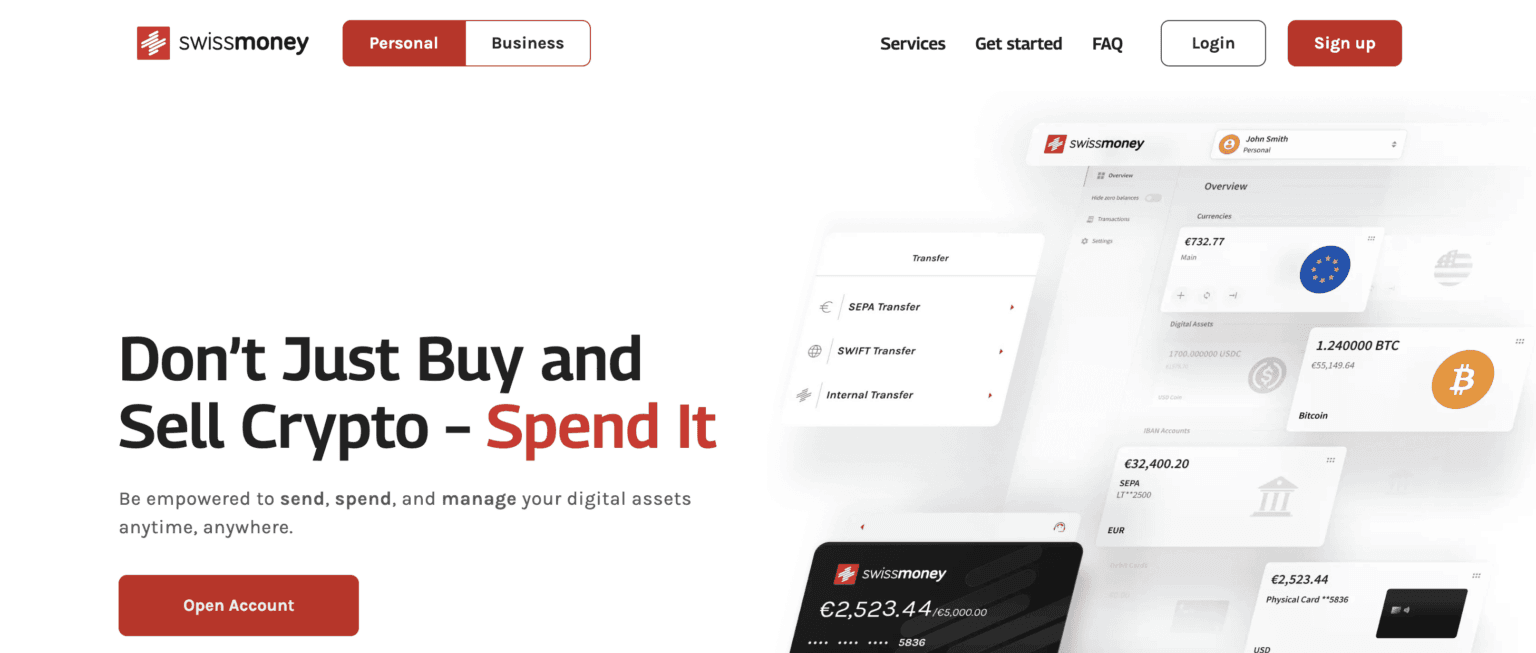
While we've already discussed one method of selling crypto, financial services provider swissmoney makes the process even easier.
You can use the platform to trade, sell, or buy crypto in Switzerland, making it highly versatile. Moreover, swissmoney offers several other features that make selling crypto convenient:
- Crypto debit card: Unlike many platforms, swissmoney offers users virtual and physical crypto debit cards to make cashing out a breeze. You can fund the card with crypto on the swissmoney platform and use it for everyday purchases wherever Visa and Mastercard are accepted. Moreover, the card boasts no hard limits, ideal for large purchases.
- IBAN accounts: swissmoney lets you store CHF, USD, GBP, and EUR in dedicated IBAN accounts that can be used for sending/receiving international transfers or setting up direct debits. As the platform provides native CHF support and offers a suite of tools for managing crypto and fiat, swissmoney is ideal for people seeking an all-in-one solution.
- Crypto wallet: Besides the platform's other features, swissmoney provides all users with a free crypto wallet that supports several high-profile assets like Bitcoin and Ethereum. As swissmoney offers a wallet to all users, using the platform is highly convenient and streamlined.
How to sell crypto in Switzerland with swissmoney
swissmoney is more than just a platform for selling your crypto.
The company has taken an all-in-one approach, implementing IBAN accounts and a debit card, creating a platform offering near-instant onboarding and total control over your fiat and crypto holdings.
You can sell crypto on swissmoney by following these steps:
Step 1: Create and verify a swissmoney account
Before enjoying swissmoney’s features, you’ll need to download the app and create and verify an account. You’ll need to enter your name, email, and password.
After confirming your email, you’ll need to provide a phone number, and then you must scan a QR code to use your phone to provide a photo and complete KYC verification.
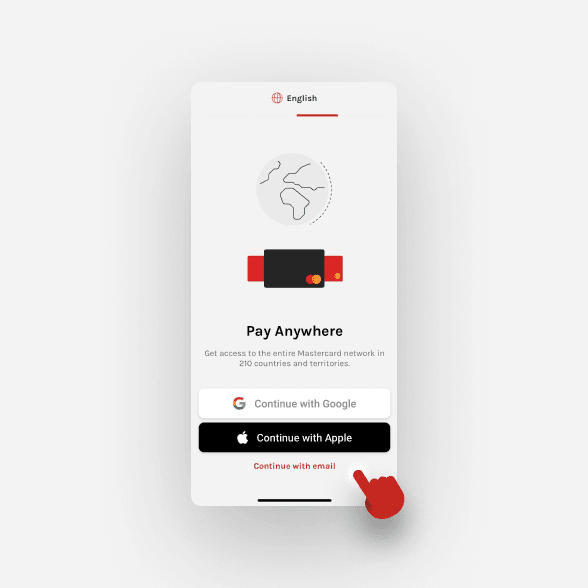
- The swissmoney onboarding process is automatic and takes only a few minutes for 90% of users.
- swissmoney has a FINMA-issued Swiss banking license, highlighting its trustworthiness.
- You can create a swissmoney account and complete verification at a later date.
Step 2: Add fiat and cryptocurrency wallets to swissmoney
Once the swissmoney verification process is completed, you must choose which assets to add to your account. By default, swissmoney displays EUR, but by pressing ‘Add currency,’ you can add a fiat wallet for CHF.
The process is similar for crypto; press ‘Add crypto currency’ and select which wallets you want to create.
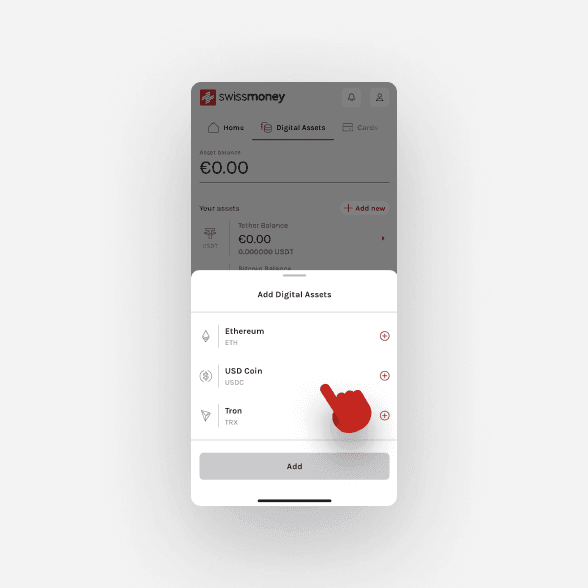
- A new wallet can take a few seconds to add to swissmoney.
- You can create wallets for all the assets supported by swissmoney
Step 3: Deposit crypto
Next, deposit the crypto you wish to sell onto the swissmoney platform via an on-chain deposit.
Click on the asset you want to deposit and send your crypto to the provided address. It’ll appear in your swissmoney account after the deposit is confirmed.
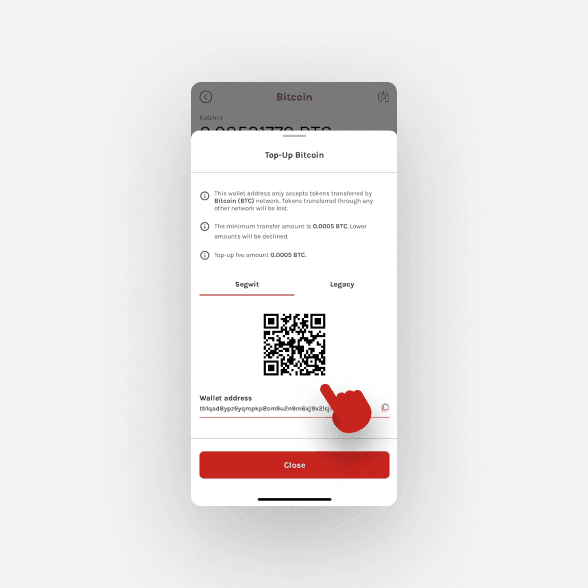
- Ensure you send your crypto to the correct wallet address.
- Double-check network fees before sending your crypto in case of high costs.
- You’ll need an asset’s base currency to cover network fees (e.g., ETH for ERC-20 assets).
Step 4: Use swissmoney to sell crypto
As soon as your deposit arrives in swissmoney, you can conveniently use the platform to sell your cryptocurrency.
Simply click on the asset you deposited, press the ‘Trade’ button, select the ‘Crypto to fiat conversion’ option, input your desired price and sale amount, then preview fees and use the ‘Sell’ button to confirm the transaction.
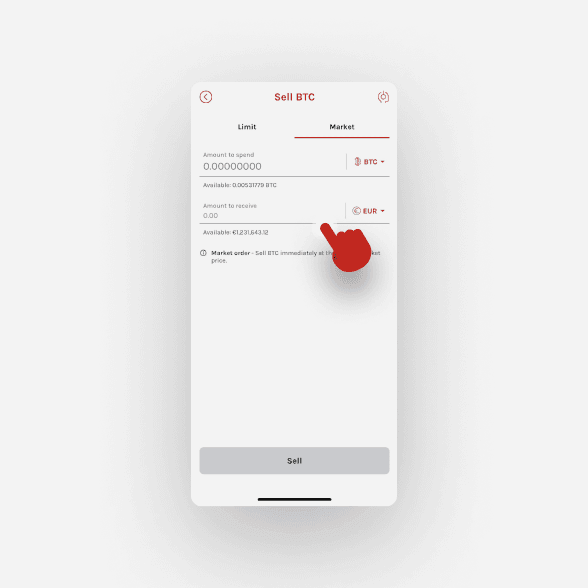
- You can use swissmoney to sell crypto for fiat or swap it for another cryptocurrency.
- After selling crypto, you can use the swissmoney debit card to spend fiat almost anywhere.
- Fiat on swissmoney can be added to IBAN accounts to cover international payments and direct debits.
What are some alternative ways to sell crypto in Switzerland?
While we've broken down the most straightforward way to sell crypto, there are several other methods that people learning how to off-ramp crypto typically employ. Before selecting a method, consider your requirements against each method.
Method 1: P2P platform
You can use a Peer-to-Peer trading platform to sell cryptocurrency in a decentralized manner. Instead of selling to the exchange, you trade directly with other users while the platform provides an escrow service.
While P2P platforms yield excellent flexibility and a wide range of payment methods, they're more risky than regular crypto exchanges.
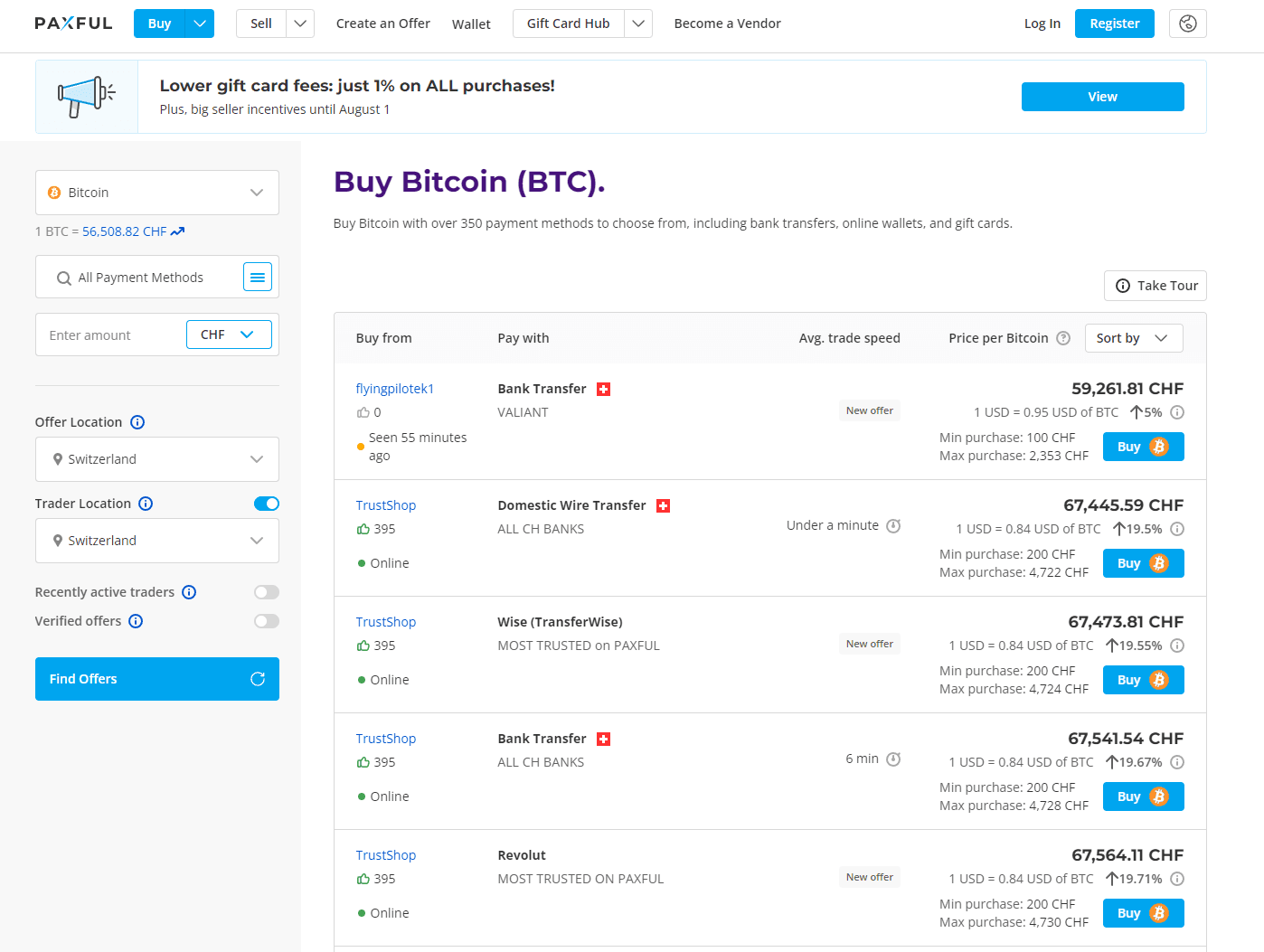
Pros:
- Range of withdrawal methods
- Can dictate sale currency
- Escrow services available
Cons:
- You'll need to wait for a buyer to find your offer
- P2P trading is unsuitable for less popular assets
Method 2: Bitcoin ATM
If you prefer to sell Bitcoin without using a web-based platform, a Bitcoin ATM could be ideal. Like traditional ATMs, you send crypto to an address the machine provides, and it outputs cash.
However, Bitcoin ATMs often charge high fees or have low limits, meaning there are better options for most transactions.
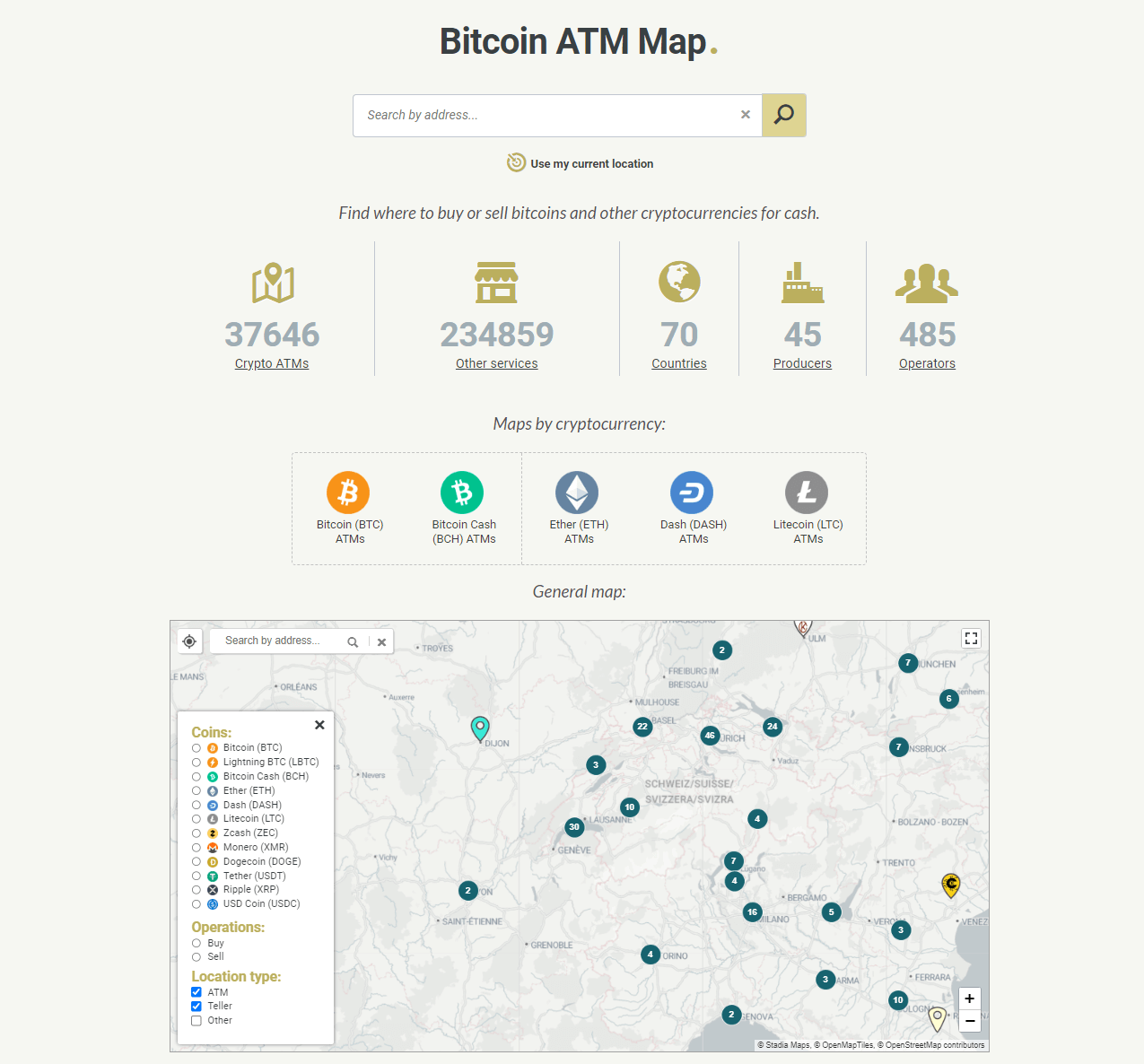
Pros:
- No need for a third-party platform
- You can cash out instantly
- Lets you sell crypto without another user
Cons:
- High fees
- Low limits
- Most go to a location in person
Method 3: In-person
If you want to sell crypto independently, trading directly in person with a buyer is one of the best methods. Trading in person lets you control the sale price and payment method.
However, setting up these types of trades can be challenging and inherently riskier than using a platform like swissmoney.
Pros:
- Highly independent
- You have total control over the sale
- ID verification is not required
Cons:
- Can be time-consuming
- Must go to an in-person location
- Riskier than other methods
Most popular platforms to sell crypto in Switzerland
1) Binance
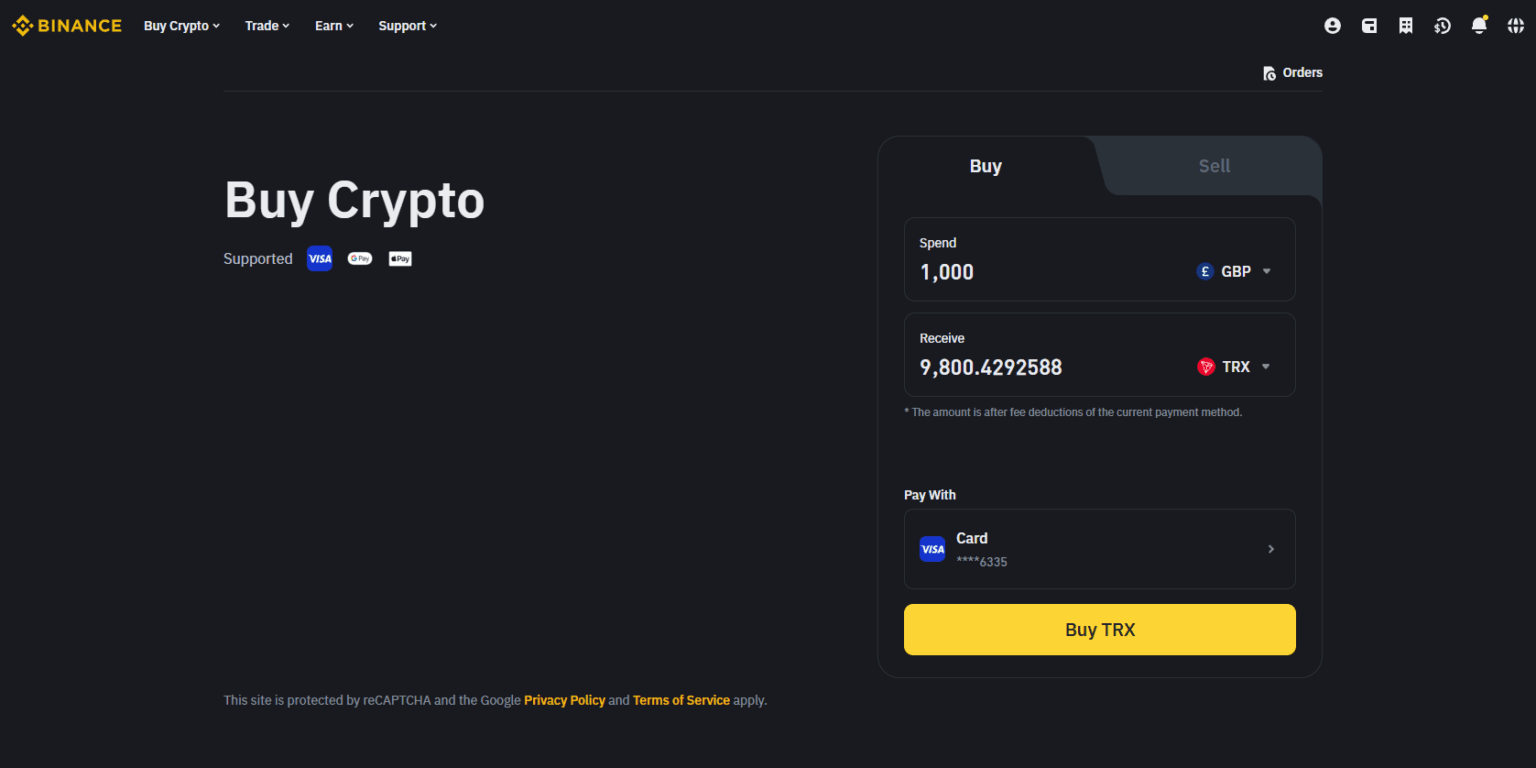
Binance is one of the world's most popular crypto exchanges. Millions use the platform, which boasts features such as staking, instant conversions, a crypto debit card, and much more.
While Binance is one of the cheapest (0.1% trading fees) and most feature-rich exchanges, the platform has repeatedly been in hot water with regulators.
2) Kraken
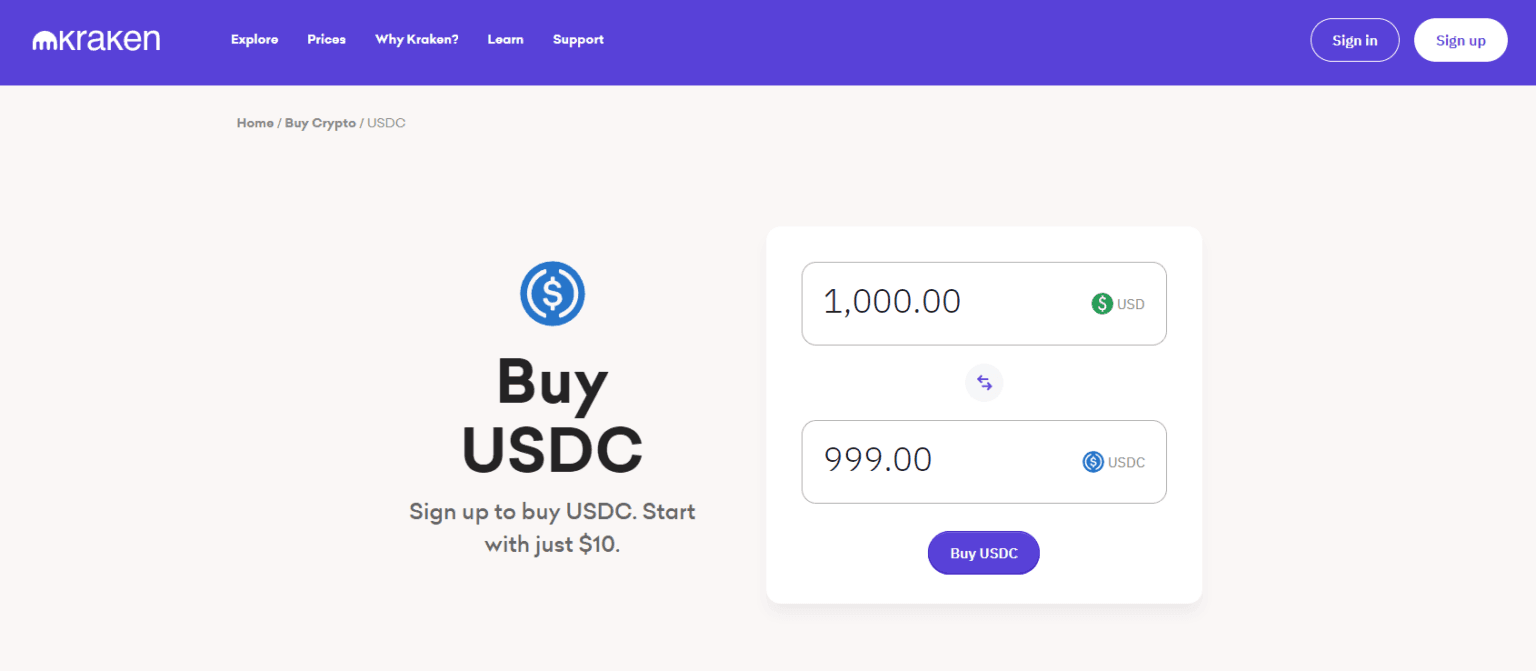
Kraken is a regulated exchange operating out of San Francisco, USA. The platform strictly adheres to regulations and boasts some of the most advanced security measures in the industry.
However, while Kraken charges higher transaction fees than Binance (0.25% maker / 0.40% taker), the platform's regulatory adherence could sway some sellers.
3) Coinbase
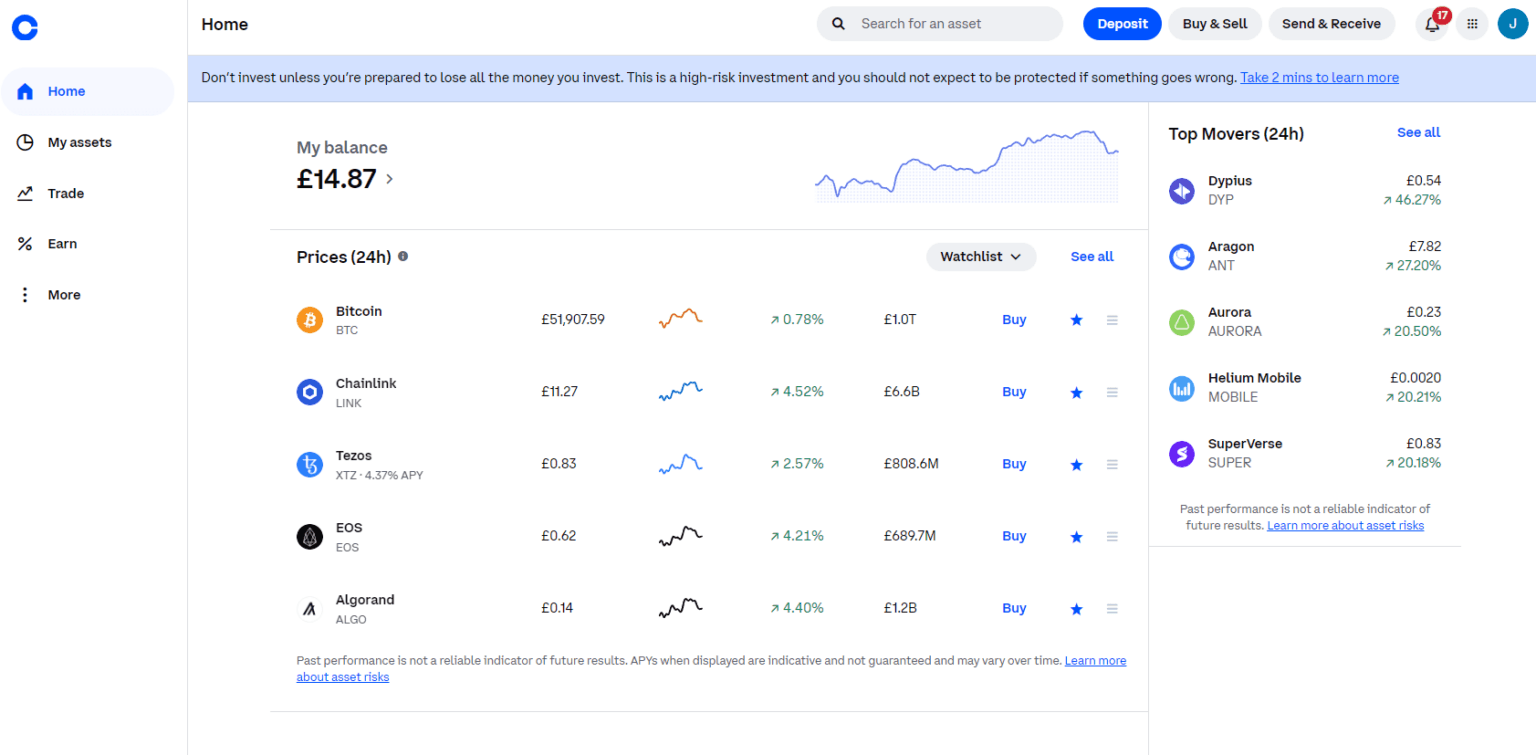
Due to its straightforward interface and focus on simplicity, Coinbase is ideal for people seeking a beginner-friendly platform to sell crypto.
While Coinbase has slightly higher fees and fewer features than other platforms, it's widely considered one of the most straightforward crypto exchanges.
4) Paxful

Paxful is the world's most popular Peer-to-Peer (P2P) trading platform. It offers many obscure payment methods, including gift cards and local e-wallets, making Paxful great for those looking to sell crypto for things other than fiat.
Moreover, the platform provides an escrow service that vastly improves user security compared to in-person trading.
Platform fee comparison
| Platform Name | Trading Fees (Maker / Taker) |
| Binance | 0.1% / 0.1% |
| Kraken | 0.25% / 0.40% |
| Coinbase | 0.40% / 0.60% |
| Paxful | Sellers pay 1% service fee |
📚Read More: Best platforms to convert crypto to fiat
Are there any security risks I should know when selling crypto in Switzerland?
Generally speaking, selling crypto in Switzerland is safe. However, some dangers do exist. To avoid them, it's worth considering the following tips:
Tip 1: Scam platforms
One of the most common ways people lose money while selling crypto is by using a scam platform.
Bad actors design fraudulent websites that look like trusted exchanges and promote them via Google ads to lure in unsuspecting users.
Always confirm the website URL is legitimate before inputting sensitive data to avoid scam platforms.
📚Read More: How to Stay Safe from Bitcoin Scams And Frauds
Tip 2: Creating a secure crypto wallet
Learning how to choose a crypto wallet that is safe and reputable is critical if you want to sell your crypto securely.
If you plan on waiting for the asset to hit a specific price or you want to sell it for another cryptocurrency, you'll need a trusted wallet like MetaMask or Exodus.
Moreover, multi-network wallets yield more flexibility.
📚Read More: Safest Ways to Store Your Cryptocurrency
Tip 3: Track record
One of the simplest and most effective ways to determine whether a certain platform is suitable for selling crypto in Switzerland is by checking its track record.
Exchanges should have a history of excellent service and assisting users. Otherwise, you could accidentally end up selling crypto on a subpar platform.
📚Read More: Crypto Security Guide
Conclusion
While figuring out where to start on your own can be challenging, our guide clearly outlines how to sell crypto in Switzerland.
We've discussed the tax implications, various methods to initiate a crypto sale, and how cryptocurrency is regulated in Switzerland while answering common questions like whether you can sell crypto anonymously.
Now that you're ready to sell crypto and have all the necessary information, you must select the best platform. Based on our research, exchanges like Binance or Kraken are best suited for crypto exclusively.
However, we found swissmoney to be the superior all-in-one choice as it allows you to sell crypto while providing the tools to help you manage your fiat after the fact.
FAQs
Can I sell crypto in Switzerland?
You can legally buy, sell, or trade cryptocurrency in Switzerland. The country is crypto-friendly and doesn't restrict activities, so selling crypto in Switzerland is straightforward.
How do I legally sell crypto?
To legally sell crypto in Switzerland, you must use a regulated cryptocurrency exchange account and declare any earnings on your tax return. You must also declare your crypto asset holdings to comply with Swiss wealth taxes.
Is Switzerland crypto tax-free?
Switzerland is one of the only countries where individuals can sell Bitcoin or other crypto assets without being subject to capital gains taxes.
You can buy and sell an asset for a profit without giving some of your earnings to the Swiss Federal Tax Administration. However, wealth and income taxes still apply.
How can I sell Bitcoin online in Switzerland?
To sell Bitcoin online, you'll need to select a regulated exchange that supports Swiss customers. Afterward, send your Bitcoin to the platform and initiate a sale for fiat currency. Then, you can withdraw the fiat to a bank account.
Is it safe to sell crypto in Switzerland?
Although buying or selling crypto in Switzerland is inherently safe, you should familiarize yourself with local laws beforehand. Moreover, you should always take time to choose the right crypto wallet and ensure you're using a legitimate platform.
What happens if I lose my crypto after selling it on an exchange?
When you sell crypto on an exchange, it's swapped near-instantly for another asset you select. As such, any crypto you believe has been lost has likely been converted to another asset. You should check your order history to confirm whether the trade has gone through.
Where can I sell Bitcoin in Switzerland?
You have several choices regarding where you can sell Bitcoin in Switzerland. You could use a crypto exchange like Binance, a Peer-to-Peer (P2P) marketplace like Bisq, or an all-in-one platform like swissmoney.
What are the fees for selling crypto in Switzerland?
The fees for selling crypto in Switzerland will vary based on the crypto, your withdrawal method, and which platform you use. Generally, you'll have to cover network costs, as well as trading and withdrawal fees.
How can I sell Bitcoin for cash in Switzerland?
If you want to sell Bitcoins for cash in Switzerland, you should opt for peer-to-peer platforms or trade directly with other users in person.
Can you sell crypto anonymously in Switzerland?
Private investors enjoy relatively loose crypto regulations in Switzerland.
However, financial platforms like exchanges and banks must comply with Anti-Money Laundering (AML) laws, meaning you'll need to complete Know-Your-Customer verification to sell on a regulated platform.
That said, you could sell crypto anonymously by trading directly with another person.

